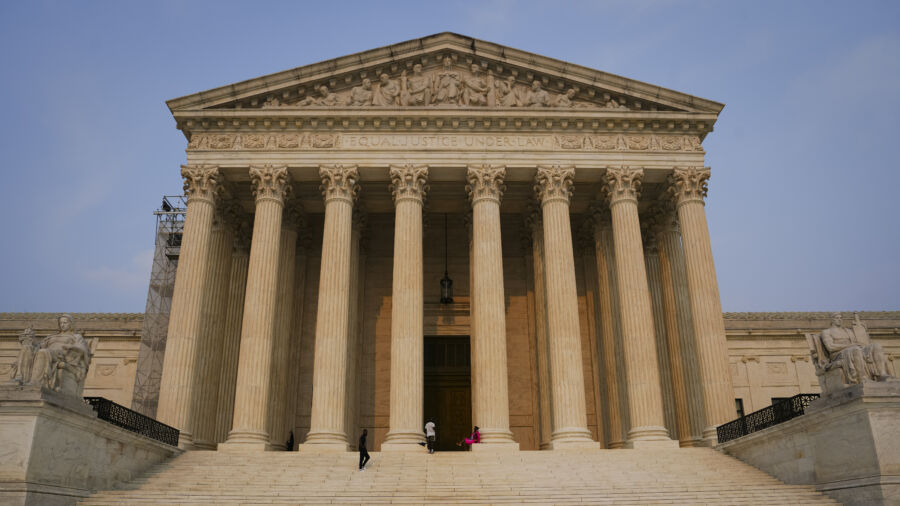The Supreme Court will hear a case about a Texas grandmother and former city council member who was arrested after criticizing a city manager.
The case deals with qualified immunity, a rule invented by the courts that shields government officials from individual liability unless the wrongdoer violated a clearly established right.
The case may have ramifications for how government officials can be held accountable in a court of law.
Civil libertarians have become increasingly critical of the qualified immunity legal doctrine in recent years, which they say allows government officials to get away with sometimes egregious wrongdoing.
City officials say if the appeal succeeds, qualified immunity could be jeopardized as a judicial policy.
The court granted the petition for certiorari, or review, in an unsigned order in Gonzalez v. Trevino (court file 22-1025), on Oct. 13. The court did not provide reasons for its decision. No justices dissented. At least four of the nine justices have to vote for a petition for it to move forward.
The respondent, Edward Trevino II, is being sued in his official capacity as the mayor of Castle Hills, Texas.
Law Firm Alleges Campaign of Retaliation
The First Amendment case goes back to 2019 when Sylvia Gonzalez won an election and became a councilwoman in Castle Hills. She spearheaded a nonbinding petition among citizens demanding that the city manager, Ryan Rapelye, be ousted for several reasons, among them that he failed to address residents’ concerns such as fixing the streets.
According to the Institute for Justice (IJ), a public interest law firm representing Ms. Gonzalez, city officials targeted her in a campaign of retaliation.
The city argued she wasn’t properly sworn in and replaced her on the city council with the candidate she defeated in the election. Later, a judge reinstated Ms. Gonzalez. A group of residents aligned with the mayor sued, claiming Ms. Gonzalez was incompetent. She prevailed in that lawsuit as well.
But officials “engineered Sylvia’s arrest for misplacing a document in her binder at a council meeting,” which “happened to be the same petition to remove the city manager that Sylvia had championed.”
“City officials argued Sylvia had stolen her own petition from the mayor as she was gathering her papers at the end of a council meeting,” IJ said.
Ms. Gonzalez was charged under a rarely invoked Texas law that forbids destroying or tampering with government documents.
Federal Judge David Alan Ezra said, “Instead of issuing a summons for the nonviolent misdemeanor, [the city] obtained a warrant to arrest the 72-year-old, which ensured that she would spend time in jail rather than remaining free and appearing before a judge.”
Ms. Gonzalez spent a day in jail and her mugshot appeared in local media reports. The local district attorney soon withdrew the charges but Ms. Gonzalez assumed the effort to intimidate her would continue and resigned from the city council.
“I didn’t think this could happen in America,” Ms. Gonzalez said in a statement after the Supreme Court acted.
“No one should be arrested for standing up for what they believe in. I’m hopeful that the Supreme Court will hold the city accountable so that no one else will have to go through what I went through. ”
Ms. Gonzalez sued the city, its mayor, and its chief of police. The federal district court sided with her, denying qualified immunity to the officials, but the U.S. Court of Appeals for the 5th Circuit reversed. The appeals court found that she could not bring a First Amendment claim because the officials demonstrated sufficient probable cause to justify arresting her.
Prior Ruling
At the oral argument, the Supreme Court is expected to look at Nieves v. Bartlett, a 2019 Supreme Court ruling that held that when a plaintiff argues retaliatory arrest for constitutionally protected speech, that plaintiff must show that the authorities lacked probable cause to justify arrest. But the court made an exception for cases in which the plaintiff can demonstrate he or she was arrested but others who did not engage in protected speech had not been.
In the new case, the Supreme Court will look at what kinds of evidence are consistent with the exception spelled out in the Nieves precedent.
The 5th Circuit found in Ms. Gonzalez’s case that the evidence she presented was insufficient to qualify for the Nieves carve-out. That court found she needed to produce examples of individuals who “mishandled a government petition but were not prosecuted under” the Texas law.
In a statement, IJ Senior Attorney Patrick Jaicomo said: “Constitutional rights mean nothing if they can’t be enforced against government officials who violate them. This blatant abuse of power by government officials should have never happened.”
The Epoch Times has reached out for comment to Mr. Trevino’s attorney, Scott Michael Tschirhart of Denton Navarro Rocha Bernal and Zech in Austin, Texas.
But on June 8, Mr. Tschirhart filed a brief with the Supreme Court urging it to reject the case.
Ms. Gonzalez’s petition endangers the qualified immunity doctrine because it could “virtually eliminate qualified immunity for arrests pursuant to warrants when a plaintiff pleads unsupported allegations of retaliation.”
Her argument “would nullify the independent intermediary doctrine which encourages officers to seek a warrant,” the lawyer wrote in the brief.
The Supreme Court has not yet scheduled oral arguments in the case.
From The Epoch Times


